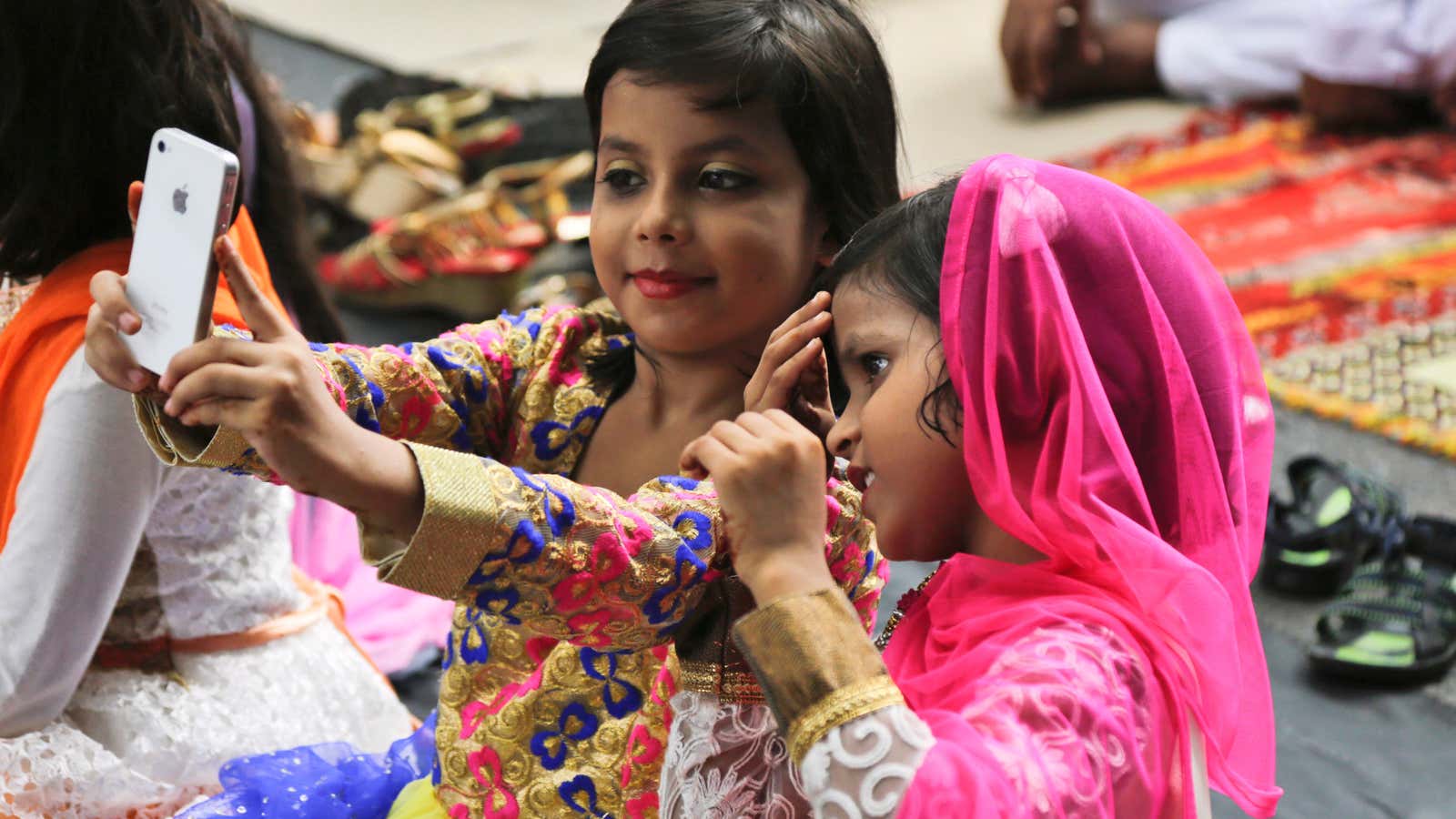Silicon Valley has found yet another reason to lock heads with Narendra Modi’s increasingly-digital India: Aadhar.
Development tools like public pensions, welfare payments, universal education, and basic healthcare will be most successful if the government implementing them knows who the programs are helping and how to reach those individuals. That’s why the Indian government launched the Aadhar (“Foundation”) initiative, which according to the World Bank had resulted in the creation of biometric identities—a verification system using fingerprints and iris scans—for over 940 million citizens.
Outside of the public sector, SIM card vendors are already using the Aadhar’s paperless verification system to authenticate people with the government’s electronic know-your-client portal, through which consumers can choose to share their demographic information or photograph with a business securely. People are linking their bank accounts and pension funds to the technology too.
Next, the Indian authorities behind the world’s largest biometric ID project—formerly spearheaded by Infosys co-founder Nandan Nilekani—want phones to come loaded with users’ 12-digit unique identifier number linked to their Aadhar account.
Key companies like Apple, Microsoft, Samsung, and Google were invited to meet with Indian government officials at the end of July to discuss embedding Aadhaar encryption into their technology, Bloomberg reported. The government asked the firms to add Aadhar-enabled chips to their devices so they can be synced to the government’s database, easing processes like money transfer. Bloomberg explains how it will work:
Indians will still log into their smartphones using the manufacturer’s biometric authentication—typically a fingerprint or iris scan. But once they access Aadhaar using the government’s encryption, the likes of Apple and Google will lose the ability to track users online, forfeiting the ability to mine that data to sell ads or other products and services. (Indian law, by the way, bars the government from collecting or using customer data.)
While most of the attendees remained tight-lipped about the meeting and Apple skipped it altogether, CEO Ajay Bhushan Pandey, who runs the Unique Identification Authority of India (UIDAI), delivered the government’s message clearly: “Go to your headquarters and work this out so that we can have Aadhaar-registered devices.”
What the government touts as a “minor tweak to the operating system” is raising red flags about privacy across the tech sector. Many companies fear that running government-funded software on their platforms could make their users susceptible to security breaches and hacking attacks. But the concerns are unwarranted, consumer electronic news site BGR reports: ”According to the UIDAI CEO, the data will be encrypted by the UIDAI key at hardware level in phones that will make it impossible for anyone else to decrypt the information except for the Aadhaar server. The agency says it will ensure full privacy and security of biometric information.”
Opposing the government’s recommendation could cost the likes of Google and Apple a chunk of the market share in one of the fastest growing smartphone markets in the world. As more Indians carry out government-related tasks on their phones, they might choose devices that are Aadhar-compliant over those that are not—especially with tough domestic competition from phone manufacturers like Flipkart, Paytm, and Snapdeal all more than happy to comply. And some international players—like Microsoft and Samsung which Skype and a tablet product respectively— integrated the technology months before the Indian government even laid out its demands.




